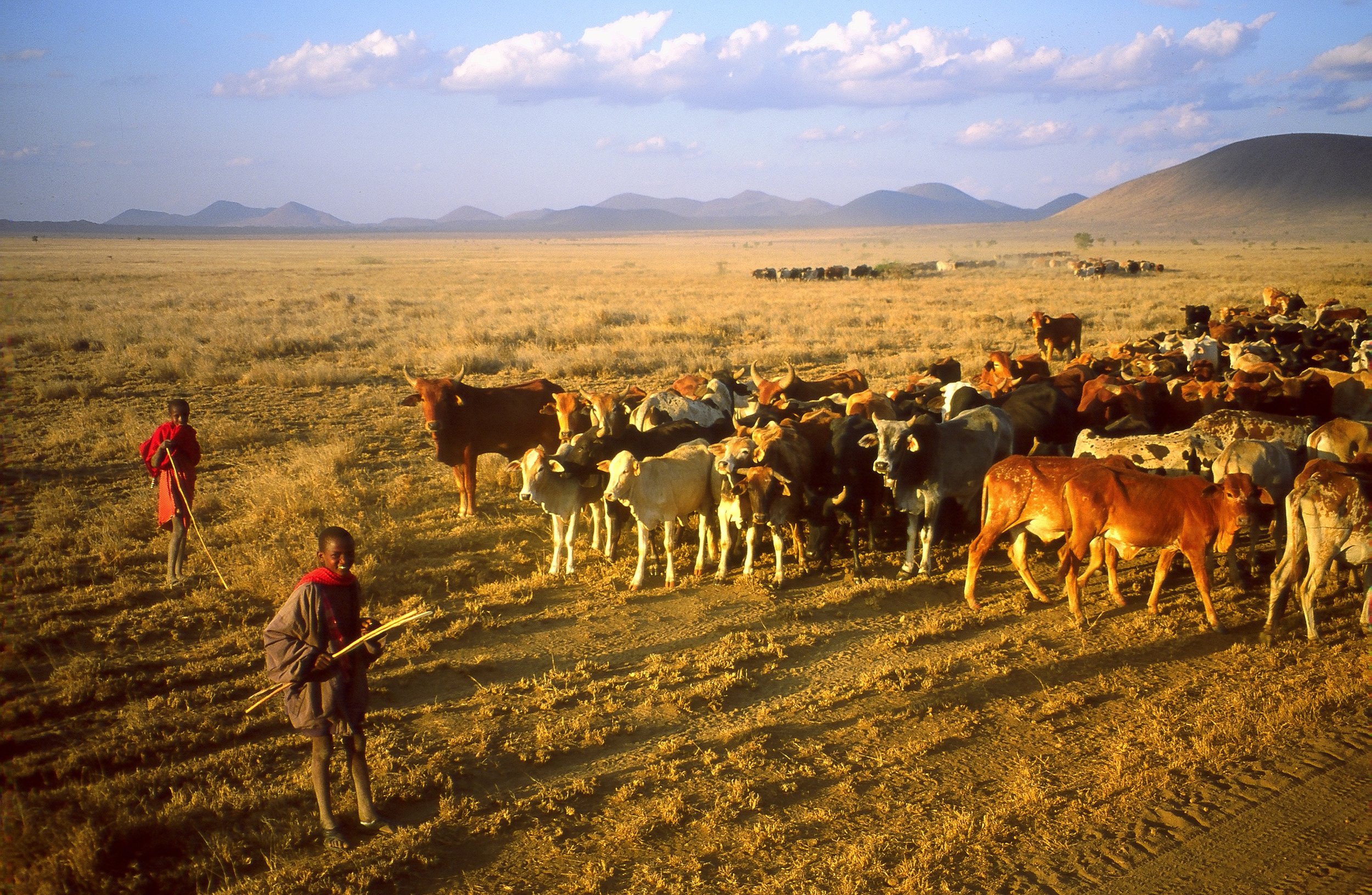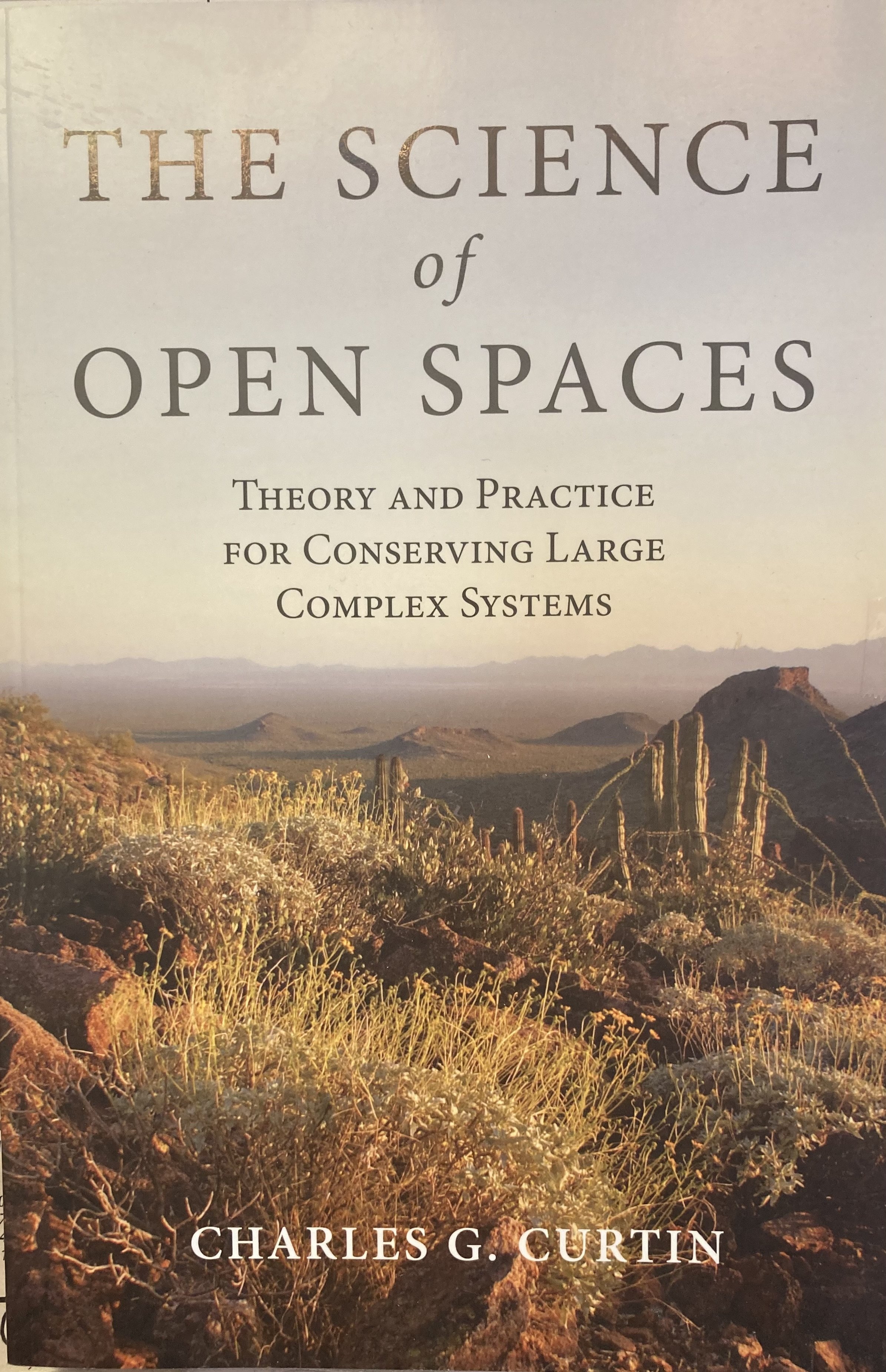
Books
My books explore the intersection of ecology and culture and have focused on how the world's messiness leads to uncertainty and unexpected outcomes…and what to do about it.
The Science of Open Spaces
Island Press (2015). This book focuses on landscape conservation as a metaphor for addressing large, complex challenges at the junction of ecology and culture. Coming from the viewpoint of collaborative conservation through a series of case studies from ranching, fishing, and international programs, it examines how individuals and organizations can more effectively sustain their landscapes and seascapes. Comparing very different systems highlights commonalities in experience to uncover what works, what does not, and why. As the first in the series, it is a primer for a general audience and is intended to be engaging for specialists and general readership alike. This seems to have worked because I’ve had people ranging from ranchers in remote corners of Montana to professors at elite universities compliment this book on its insight and accessibility.
The Science of Open Spaces offers an important critique of traditional and contemporary management practices that anyone involved in conservation would be wise to pay attention to and presents in a way that is engaging and thoroughly enjoyable to a reader with an even passing interest in conservation. (Natural Resources Journal)
The book offers both inspiration and guidance. It shows that conservation - essentially, sustainability - can indeed be accomplished. Along with knowledge and technical and social skills, the ethical qualities of patience, perseverance, and humility are essential. In this way, Open Spaces shows how true sustainability is not a distant goal, but a constant practice...This is a very important book indeed. I think that it was Napoleon who said that it is more important to learn from failures than from successes, but that is all too rare in science. Jerome Ravetz (University of Oxford)
Complex Ecology
Cambridge University Press (2018). This book takes a deep dive into the foundations of complexity-based approaches to ecology and conservation, including input from more than 60 of the leading voices from across the globe. The book is about more than the natural sciences - but promotes a complexity-based viewpoint that is equally relevant to addressing all manner of societal challenges. As such, it is not so much about ecology per see, as uses ecology as an example of how people use science-based approaches to solve complex challenges. Numerous people how told me it is the best book they have read on complexity and systems thinking because it provides concrete examples through a diversity of viewpoints.
Complex Ecology provides an essential compass for scientists and conservationists to navigate the shifting ecological context of conservation action. This book contains the touchstone primary sources that underpin resilience theory, conservation biology, and trophic ecology. Gary Tabor, Center for Large Landscape Conservation, Montana
A complexity lens puts the spotlight on scale, the role of mental models and perspectives of the observer, and the influence of hidden, indirect interactions that slip attention in narrowly-framed studies of individual system components. When the stakes are high and uncertainties many, a complexity approach is the only way forward. African Journal of Range and Forage Science.
Complex Ecology is a landmark synthesis of some of the most important issues of our time. From biodiversity loss to global warming, we are confronted with an increasing array of complex challenges that defy simple solutions. Though focused on ecology, Complex Ecology is representative of an epistemology of how to address complex challenges in general. Amazon Reviewer.
Place-Based Solutions: The Power of Regenerative Thinking in the Face of Crisis.
From Johns Hopkins University Press, you can order it directly at a 30% discount using the code HTWN. Jonathan Cobb, who has edited for eminent ecologists and conservationists ranging from Paul Erlich to David Western, has described this as one of the most important books of its time.
“Science and technology can identify environmental threats, but don’t solve them. Curtin shows the power of collective action among ranchers, pastoralists, and fishermen in conserving natural resources. We must now add ‘prosilience’ to our science, policy, and governance toolkit to sustain environmental health in an ever changing world.” David Western, a senior Kenyan conservationist and world leader in collaborative conservation, and the author of We Alone: How Humans Have Conquered the Planet and Can Also Save it.
“Blending personal insight, ecological practice, and institutional design. Place-based solutions offer tools for navigating uncertainty and transformation. Informed by post-normal science, it bridges ethics, policy, and local knowledge through vivid case studies and illustrations - making it an essential resource for educators, practitioners, and communities confronting today's complex socio-environmental challenges.” Silvo Funtowicz, European Centre for Governance and Complexity.
The point is to move beyond the resilience framing of societal challenges that largely sustain the status quo. And instead, find creative solutions that chart a new path forward to cultivate the institutions and internal thinking needed to develop proactive rather than reactive solutions. The world is rapidly transitioning in the face of climatic and societal change; the solutions are different - we need to think and act differently with solutions grounded in adaptivity, integrity, and equity.


